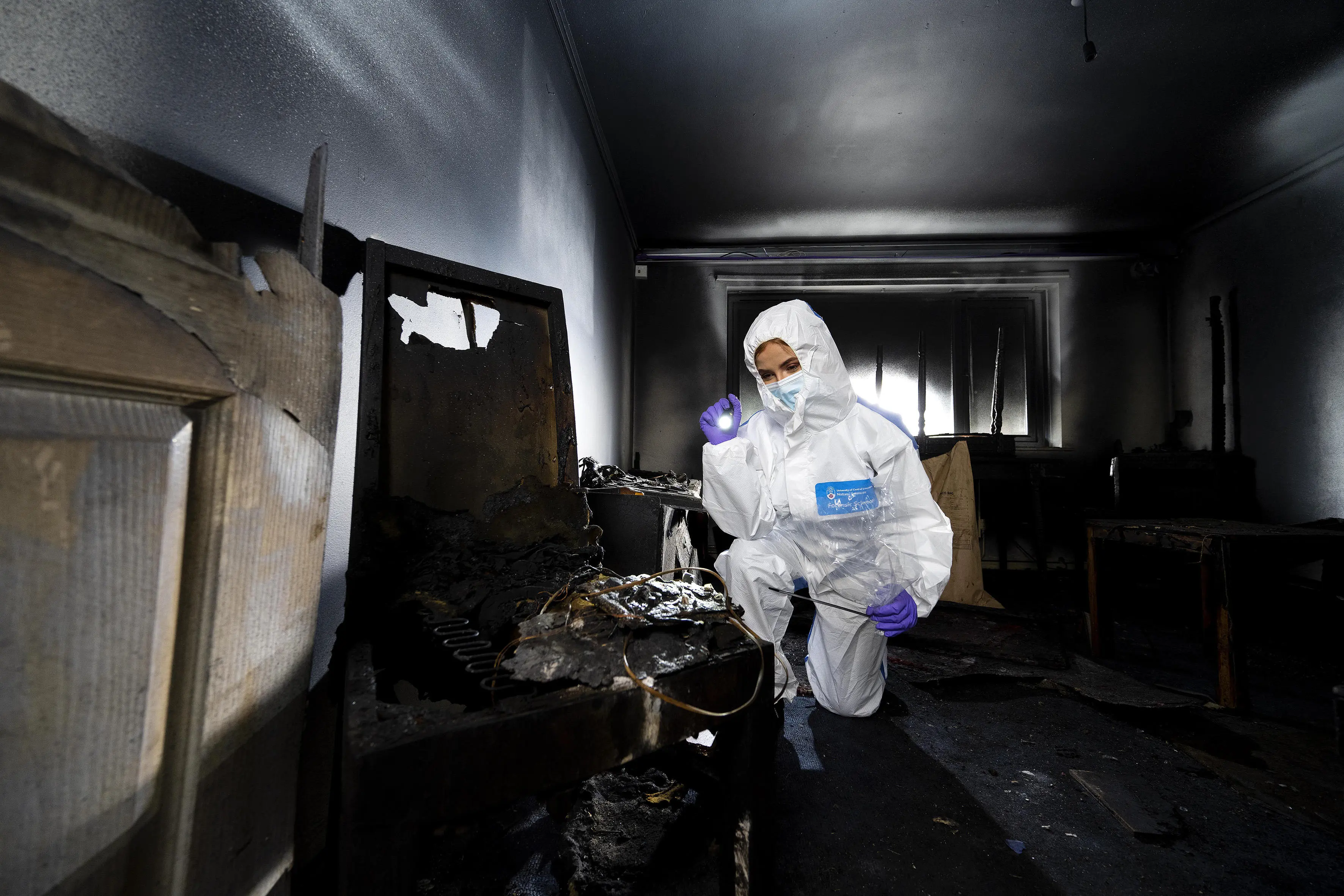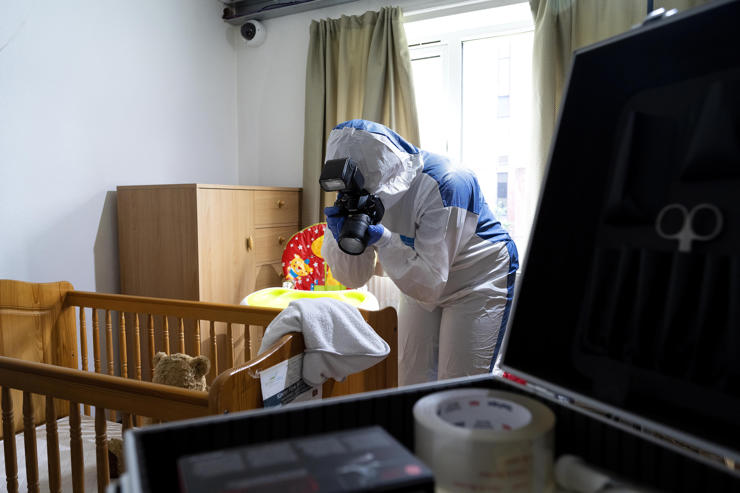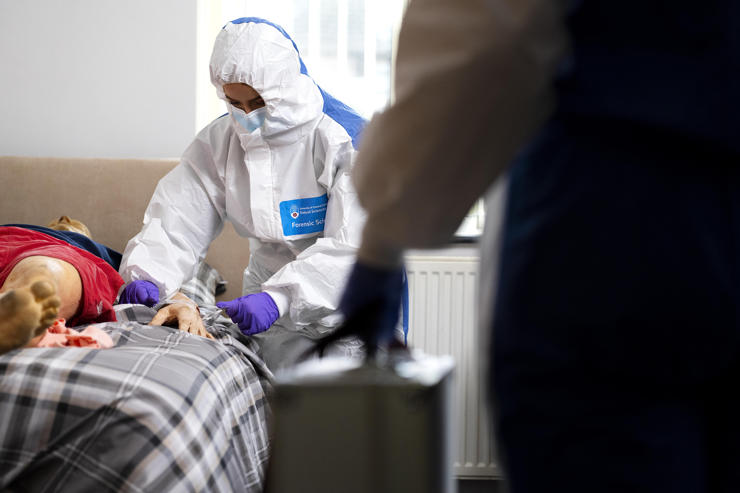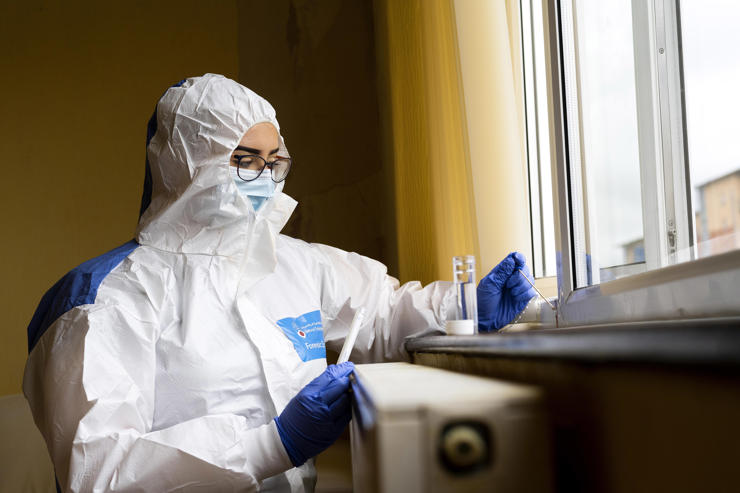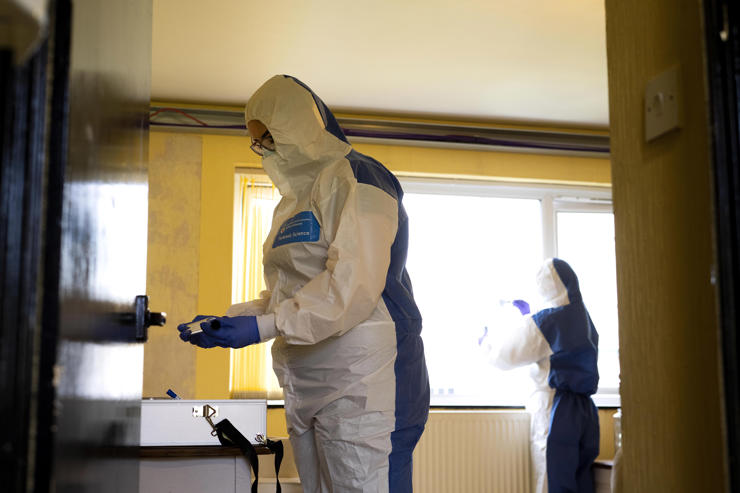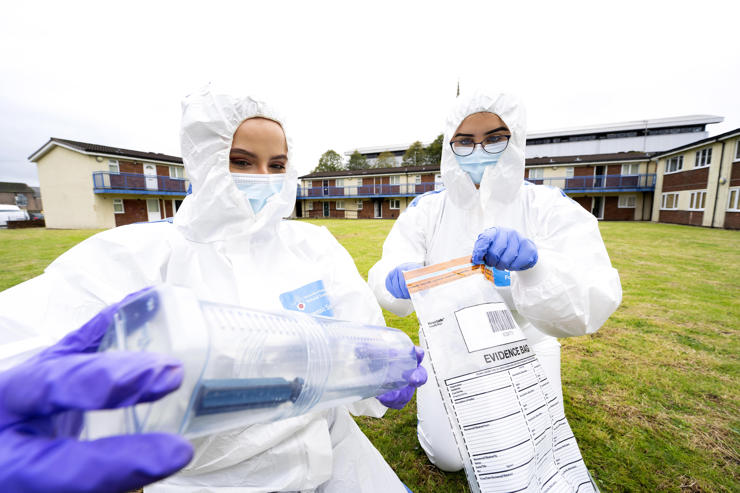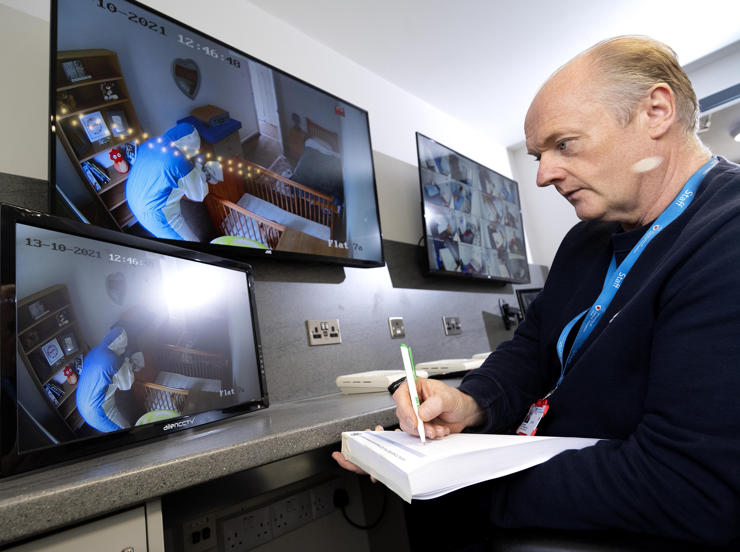Vacant housing is repurposed into authentic crime scenes for UCLan’s growing number of forensic science and criminal investigation students
A vacant community housing project in Preston has been given a new lease of life after it was turned into crime scene training facilities for the University of Central Lancashire (UCLan).
Fifteen of the flats, off Harrington Street, have been repurposed to create more practical scenarios for forensic science and criminal investigation students.
The majority of the properties, which comprise of a galley kitchen, small bathroom, bedrooms, lounge and hallway, have been largely untouched to replicate the real-life surroundings crime scene investigators would face out in the field.
Paul Callaghan, Course Leader for UCLan’s BSc (Hons) Forensic Science and Criminal Investigation, said: “A lot of the flats weren’t in a very good condition so we haven’t done much work to them as they will allow our students to experience the environments they’ll be working in.
"We’ve turned the worst room, which really was disgusting, into a child neglect scenario because it replicates many of the crime scenes that us staff, who’ve worked as crime scene investigators, have encountered in our years in the job"
— Paul Callaghan, Course Leader for UCLan’s BSc (Hons) Forensic Science and Criminal Investigation
“We’ve turned the worst room, which really was disgusting, into a child neglect scenario because it replicates many of the crime scenes that us staff, who’ve worked as crime scene investigators, have encountered in our years in the job.”
A variety of scenes have been created to replicate the real-world, including bedsits, family-sized properties, offices and an estate agency.
To add more realistic elements to the new facilities, a selection of old charity shop sofas, beds, chairs and carpets have been fire damaged to imitate arson and electrical fire scenarios.
CCTV has been installed in all the properties and the cameras link to a specialist observation room where the academics can watch and listen to the students during the practical sessions.
Final year student Sophie Ponsonby, 20, from Burscough, is one of the first students to use the new crime scene flats. She said: “They are amazing! We now have a great opportunity to use really good facilities with a great range of different scenes. They are very life-like and replicate the environments we’ll be working in once we’ve qualified.”
"We now have a great opportunity to use really good facilities with a great range of different scenes. They are very life-like and replicate the environments we’ll be working in once we’ve qualified"
— Final year student Sophie Ponsonby
Paul and his colleagues are all former crime scene investigators. He said: “The demand for our courses is growing year-on-year and the numbers have doubled in size during the past three to four years. We want to ensure all our students get as much hands-on experience as possible so these new facilities will allow one to two students to work on a single scenario rather than four to five as has occurred previously.”
Twenty-one-year-old Katie Davies, from East Sussex, added: “Previously we’ve worked in situations where one person has been the photographer, another has been the note taker, another has been on fingerprints and so because of the restrictions on room. But now, we can work individually and be responsible for all crime scene management in a scene, which is how it would be if we attended scenes like burglaries on homes and cars.”
The new facilities are in addition to the University’s three terraced houses, which are home to various set-ups including a post office and pub, and a specialist garage, which houses four vehicles and blood analysis areas.

